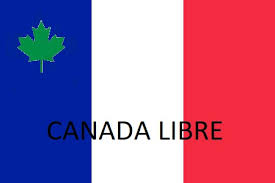BOOTING MCGILL OUT?
Raised in an affluent peasant family, the young woman was then around 13. The year was 1425, toward the end of the One-Hundred-Years war. At that time, the English were wtill occupying a large part of the kinddom of France, and the French monarchy was in dire needs. The only free part of the kingdom was on the south of the Loire river , and the Engl;ish were about to lay siege to Orléans, one of the few cities with a bridge over that river, just south of Paris.
It was on that delicate moment that the young Jeanne d'Arc, still unmarried and a virgin, heard her voices and had her visions, originating from saints and archangels. She felt urged her by them to help the future Charles the VIIth, to leave her village and join him, to make sure that he could repel the English, liberate the country, put an end to that never-ending war, and become the legitimate king of France. The divine will, according to her, was quite simple: bouter les Anglois hors de France.
The story of Joan of Arc is well known. The story of what may happen with the growing anglicization of Montréal is yet to be written. The background is clear: the failure of two lost referendums on sovereignty, the following hibernation of nationalist forces in the province, the afterward inactiviy of the liberal provincial governments on the linguistic front, the growing attractivity of the English language, in the province but also all over the world, etc. The result is that the economic metropolis of the province, Montréal, but also many major cities, like Laval and Gatineau, are experiencing the start of an anglicization process, similar to what, over the years, have weakened and diminished French-speaking communities outside the province of Québec, once considered the very bastion of French culture in Canada. That bastion may possibly fall, with disastrous consequences for the long term survival of french-canadian culture in that part of the continent.
The new Québec government, run by the Coalition avenir Québec (CAQ), nominally in favor of a greater autonomy for the province, is aware of the situation, but doesn't seems to thing it's important, or that there's any kind of urgency in the matter. It is downplaying the situation, to the point that it is actively helping the development of English institutions of higher learning, to the detriment of French ones, by helping McGill University (possibly the most renown English language university in Canada) and Dawson College (already the largest in the province) to enlarge their installation, to the tume of 700 millions dollars to the first and 100 millions to the second. They will then be able to enroll even more immigrant and francophone students than now, making English even more attractive to the large and growing immigrant population in Montréal, and also to young francophones, impress by the spread and prestige of that language all over the planet.
Does the province needs McGill, ot does McGill needs the province? If that institution of higher learning transform itself into a vector of anglicization, and start to represent a threat to the survival of French culture in the province, it may well became a problem in need of a solution, perhaps even a drastic one. That university has been part of the cityscape for a long time, but nothing is eternal, especially if its usefulness becomes in doubt. The question must be asked: qhat is the use of having such a large English-language institution in Québec, considering that the English-speaking part of the population has fell to around 8 or 9 % of the provincial total? Is it really useful to the province, or is it a threat to its culture? It was created when Montréal was better-knowed as ''Montreal'', the nerve center of Canada, the epicenter of English Canada. That time is long past.
Does the province needs McGill or does McGill needs the province? In both cases, the answer is no, they don't. Maybe McGill will have a brighter future somewhere in Ontario. It will certainly be good for Ontario, and it will be better that way for the survival of a French Québec.
There is a precedent to that kind of situation. The Université catholique de Louvain was found, in 1834, in the northern part of Belgium, inhabited by the Dutch-speaking part of the population. Quite renowned and prestigious, that university became embroiled in the linguistic troubles of the 60s, with the result that it was decided to divide it in two parts, with a Dutch part remaining in place, while the French part was moved to Wallonia, some kilometers to the south, in brand-new installations located in a new city: Louvain-la-Neuve.
Things are not exactly the same, of course. Still, it may be a path that deserves to be explored...




Commentaires
Enregistrer un commentaire
Bonjour, tous les commentaires sont acceptés, dans la mesure où ils sont d'ordre professionnel. Insulteurs s'abstenir...